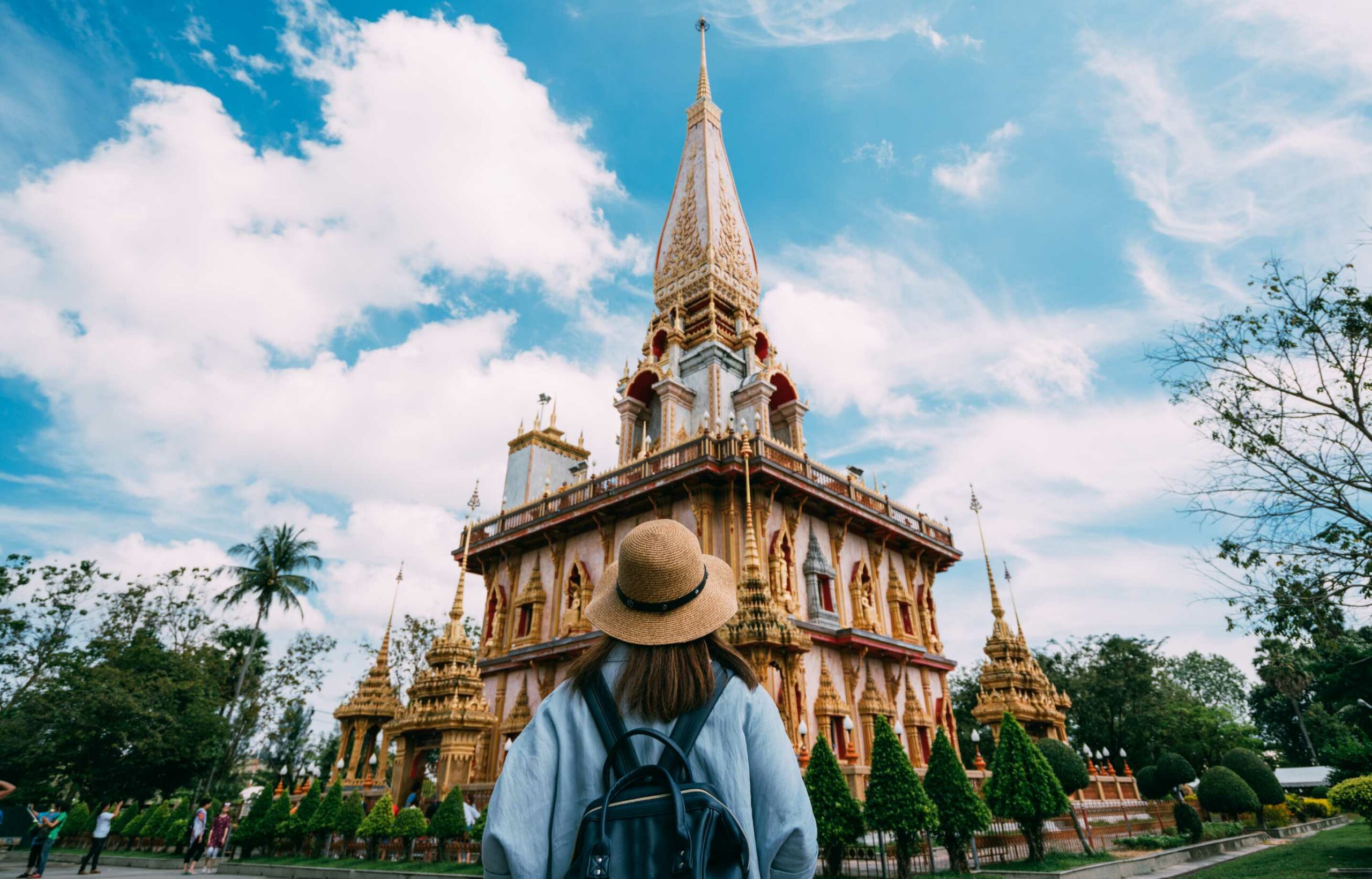Thailand has always been a dream destination for tourists, offering stunning beaches, vibrant culture, and delicious cuisine. Thanks to the newly introduced Thailand Digital Nomad Visa, it’s becoming a haven for remote workers and digital nomads. Thai authorities have recently updated the visa to offer a five-year validity, allowing visitors a 180-day maximum stay per visit.
They can extend for another 180 days with an additional fee. It significantly improved from the previous allowance of only two 30-day stays. This innovative visa policy aims to boost tourism and attract professionals seeking to live and work in Thailand for extended periods.
Here’s everything you need to know about the Thailand Digital Nomad Visa and how it can benefit you.
What is the Thailand Digital Nomad Visa?
It is part of a broader set of visa facilitation measures approved by the Thai cabinet to enhance tourism, a vital driver of the country’s economy. Starting June 1, 2024, this visa allows remote workers to stay in Thailand for up to five years. This initiative aims to attract professionals seeking long-term stays. It fosters cultural exchange and economic growth as Thailand joins the growing list of countries that offer digital nomad visas.
The future of work is increasingly location-independent. Previously, digital nomads could only stay for up to 60 days, each limited to 180 days. The new policy represents a significant shift, making Thailand one of the most attractive destinations for remote work. This change aligns Thailand with popular digital nomad hubs like relocating to Bali for remote work and working remotely in Lisbon, enhancing its global appeal.

💡Related – How to Master Relocating to Lisbon? Here is a City Guide
Benefits of the Thailand Digital Nomad Visa
They offer many advantages for remote workers looking to embrace a new way of life in Thailand. From extended stays and work flexibility to cultural immersion and affordability, this visa presents an ideal opportunity for digital nomads to experience Thailand while continuing their remote careers.
Here are some key benefits –
- Extended Stay – The most significant advantage is its extended stay. Digital nomads can enjoy up to 12 months in Thailand without frequent visa runs or extensions, providing a stable and hassle-free living arrangement.
- Work Legally – This visa allows holders to work legally in Thailand, providing peace of mind and avoiding the legal ambiguities often associated with working on tourist visas. It also opens up opportunities for collaboration with local businesses and organizations.
- Access to Local Services – With this visa, remote workers can open accounts at local banks for digital nomads to access healthcare services and rent property more efficiently, enabling a more integrated and comfortable living experience.
- Cultural Immersion – Immerse yourself in the rich Thai culture, from vibrant festivals and ancient temples to traditional cuisine and warm hospitality. They offer a unique opportunity to learn about a new way of life and broaden your horizons.
- Cost of Living – Particularly in comparison to Western countries. Depending on your lifestyle, monthly expenses can range from $1,500 to $2,500. Find a comfortable apartment in Chiang Mai for $500 or enjoy delicious street food for just a few dollars.
Who Is Eligible to Apply?
The Thailand Digital Nomad Visa opens doors for various remote workers looking to explore and live in this vibrant country. The eligibility criteria accommodate various professional situations, whether you’re a freelancer, business owner, or an employee of a foreign company. This visa lets you work while enjoying Thailand’s rich culture and beautiful landscapes.
To qualify, applicants must meet the following criteria –
- Employment Status – You must be self-employed or employed by a company outside of Thailand. Freelancers and independent contractors are also eligible if their clients are outside Thailand.
- Income Requirements – Meet the financial requirements, typically proving a monthly income of at least $2,500 over the last six months or a bank account balance of at least $43,000 in the previous 12 months.
- Proof of Employment or Business Ownership – You will need a letter from your employer confirming your remote work arrangement. If you are a business owner or freelancer, you must provide proof of your business activities and income.
- Clean Criminal Record – Applicants must have no criminal record. The application process may require a background check.
- Health Insurance – Although only sometimes required, having health insurance that covers you while in Thailand is recommended.
World Nomads insurance is the best purchase if you want digital nomad health insurance. Click here, go to the site, and purchase it now. It is more reliable coverage wherever you go.
💁♀ Also read – Is World Nomads a Good Travel Insurance? An In-depth Review
Thailand Digital Nomad Visa Requirements
The documents required to apply for a Thailand Digital Nomad Visa can vary based on your specific circumstances and the Thai embassy or consulate where you submit your application. It’s crucial to verify the particular requirements of the consulate you intend to visit before proceeding. It ensures all your documents are in order, including any necessary translations into Thai or notarizations.
Typically, the required documents include –
- A valid passport
- Proof of income (e.g., bank statements showing a monthly income of at least $2,500 over the past six months or a savings balance of $43,000)
- Employment verification or proof of business ownership
- Completed visa application form
- Two passport-sized photos
- Proof of accommodation in Thailand
- Clean criminal record
- Proof of health insurance (recommended)
- Bank account balance of at least $43,000 for the past 12 months
- Demonstration of intention to leave Thailand once your visa expires unless you renew or apply for a different visa type
- Payment of the required application fee, which varies depending on the length of your stay
Note – These requirements are subject to change, so you should check with the Thai embassy or consulate for the most up-to-date information before submitting your application.

Application Process
To apply for the Thailand Digital Nomad Visa, gather essential documents such as a valid passport, proof of remote employment or business ownership, proof of income, global health insurance, and a clean criminal record. Submit your application at the nearest Thai consulate or embassy, ensuring all documents are translated into Thai if required and properly notarized.
The application process typically involves –
- Fill out the visa application form from the Thai embassy/consulate website.
- Processing time is 1-4 weeks, with possible requests for additional documents.
- Enter Thailand within six months of visa approval.
- Obtain your temporary residency permit from the Immigration Bureau (IM) within 30 days of arrival (1-2 weeks processing).
- Renew or extend your visa if needed through the Immigration Bureau.
Remember to start the application process before your move to Thailand, as processing times can vary. Contact the Thai embassy or consulate for any specific questions or concerns regarding your application.
Timeline for Applying for Thailand Digital Nomad Visa
The application process may take a few weeks, so apply well before your intended travel date. The processing time can vary depending on the embassy or consulate you apply through and the volume of applications they handle. On average, you can expect a processing time of about 15-20 working days, but allowing a few extra days for unexpected delays is wise.
Gathering all the necessary documents beforehand can help expedite the process. Ensure that all your documents are translated into English and adequately certified. Once approved, you can start enjoying the benefits of living and working in Thailand almost immediately. Your journey to working from paradise begins when you receive your visa!
How Much Does the Thailand Digital Nomad Visa Cost?
The Thailand Digital Nomad Visa costs ฿5,000 (approximately $150) for the initial application. It covers your visa processing and allows you to stay in Thailand for up to 180 days. An extension of stay for another 180 days costs an additional THB ฿10,000 (around $290). You can stay in Thailand for almost a year using the extension option.
It’s important to note that these fees are for the visa and don’t include other expenses like flights, accommodation, or daily living. The affordability of living in Thailand often offsets visa fees, making it a financially attractive destination for digital nomads. Remember that exchange rates can fluctuate.
So, checking the current conversion rates before applying is always a good idea.

Expanded Visa Eligibility for Tourists and Postgraduate Students
In addition to the new Thailand digital nomad visa, Thailand has extended stay periods for tourists and postgraduate students. This move aims to attract more visitors and boost the tourism sector, a crucial pillar of the Thai economy. Travellers from 93 countries can now stay in Thailand for up to 60 days, compared to the previous list of 57 nations. This expanded list offers more flexibility and convenience for tourists from various regions.
The list of countries eligible for visas on arrival has also expanded to 31 from 19. It makes it easier for travellers from these countries to enter and explore Thailand. Postgraduate students pursuing bachelor’s degrees or higher will find it easier to stay in Thailand and seek employment after graduation.
They can extend their stay for one year to search for jobs, travel, or engage in other activities, provided they obtain certification from the Ministry of Higher Education, Science, Research, and Innovation.

Record-Breaking Tourism Targets
Thailand has already recorded 14.3 million tourists from January to May 26 this year and is targeting 40 million foreign arrivals in 2024, with revenue projections of 3.5 trillion baht (approximately $95.73 billion). Thailand’s reputation as a premier travel destination, known for its stunning beaches, rich cultural heritage, and vibrant cities, bolsters these ambitious targets.
In pre-pandemic 2019, Thailand recorded 39.9 million arrivals, generating 1.91 trillion baht (around $54 billion). These new Thailand digital nomad visa policies are expected to support these ambitious targets significantly, driving economic growth and revitalizing the tourism industry. With the easing of travel restrictions and the introducing of these visa policies, Thailand is ready to reclaim its position as one of the world’s top tourist destinations.

Paying Taxes as a Digital Nomad in Thailand
Tax obligations for digital nomads in Thailand can be complex, depending on residency and income source. Thailand’s tax laws constantly evolve, so staying informed and seeking professional advice is crucial. It’s also essential to distinguish between Thai-sourced income (earned in Thailand) and foreign-sourced income (earned outside of Thailand).
Here’s a general overview with relevant information –
1. Non-Resident Digital Nomads
If you stay in Thailand for less than 180 days in a calendar year and earn income from a foreign employer, you are generally not liable for Thai income tax on that income. It is a significant advantage for digital nomads outside Thailand who maintain employment or business. You may incur Thai income tax if you bring your foreign income into Thailand in the same year you earn it.
2. Resident Digital Nomads
If you stay in Thailand for 180 days or more in a calendar year, the Thai government considers you a tax resident. As a tax resident, you are liable for Thai income tax on your worldwide income, including Thai and foreign-sourced income. However, certain deductions and exemptions are available, and progressive tax rates range from 5% to 35%.
Key Considerations –
- Income from Thai sources, such as freelance work for Thai clients, is generally subject to Thai income tax, regardless of your residency status.
- The Double Taxation Agreements (DTAs) that Thailand has with various countries may help you avoid being taxed twice on the same income.
- It’s essential to keep accurate records of your income and expenses and any documents related to your visa and residency status.
- Consulting with a tax professional or seeking advice from the Thai Revenue Department is highly recommended to ensure compliance with Thai tax laws.
By understanding your tax obligations and seeking professional guidance, you can effectively manage your taxes as a digital nomad in Thailand and enjoy the benefits of living and working in this beautiful country.
Living and Working in Thailand
They offer a vibrant and culturally rich experience. The country is renowned for its warm hospitality, stunning landscapes, and delicious cuisine. Thailand boasts diverse living options, from bustling cities like Bangkok and Chiang Mai to serene coastal towns and lush countryside retreats. As a digital nomad in Thailand, you can enjoy a comfortable lifestyle at an affordable cost.
Accommodation, food, and transportation are generally inexpensive, allowing you to stretch your budget further. Thailand’s tropical climate and beautiful beaches offer plenty of opportunities for relaxation and exploration. Explore Thailand’s rich cultural heritage by visiting ancient temples, attending traditional festivals, and experiencing local customs.
Indulge in Thailand’s famous cuisine, including dishes like Pad Thai, Tom Yum Goong, and Som Tum. Visit renowned restaurants such as Gaggan in Bangkok, known for its innovative take on Indian cuisine, or Nahm, which offers authentic Thai flavors in a sophisticated setting.
The country’s bustling markets are a treasure trove of unique finds, from handmade crafts to delectable street food.

Recommended – 12 Best Hotels for Digital Nomads and Remote Workers to Work Productively
Which Coworking Spaces Are Available in Thailand?
Thailand boasts a vibrant coworking scene, providing a range of spaces designed for digital nomads. Whether you seek a bustling city vibe, a serene beachfront locale, or a blend of both, Thailand offers coworking spaces to match your unique preferences and needs. With its diverse offerings and modern amenities, working remotely in Thailand is convenient and inspiring.
Here are some of the best digital nomad coworking spaces in Thailand –
| Coworking Space Name | Location | City | Price (THB/Day) | Amenities | Vibe |
| The Hive Thonglor | Thonglor | Bangkok | ฿450 | Wi-Fi, meeting rooms, café, terrace | Creative and social |
| The Work Loft Silom | Silom | Bangkok | ฿350 | 24/7 access, meeting rooms, café, bar | Affordable and productive |
| CAMP | Sathorn | Bangkok | ฿500 | Desks, offices, meeting rooms, gym | Modern and upscale |
| JustCo | Multiple Locations | Bangkok | ฿500 | Desks, offices, meeting rooms | Professional and network-oriented |
These coworking spaces cater to digital nomads, offering essential amenities and a lively community to enhance productivity while experiencing the country’s beauty and culture.
Challenges as a Digital Nomad in Thailand
While Thailand offers an enticing mix of culture, affordability, and natural beauty, digital nomads may encounter challenges while living and working there. Through careful planning and preparation, digital nomads can effectively navigate these challenges. They enable them to fully immerse themselves in Thailand’s vibrant and culturally diverse country in a rewarding manner.
Here are some common hurdles, along with practical solutions –
1. Visa Regulations
While Thailand offers various visa options, navigating the rules and ensuring compliance can be complex and time-consuming, especially if you’re looking for a long-term stay. It’s essential to stay updated on the latest requirements and regulations to avoid any issues during your stay. Consider seeking assistance from a local visa agency or consultant to simplify the process and ensure compliance.
Solution – Research and understand the visa options available in Thailand. Consult with visa agencies or legal professionals specializing in Thai immigration to ensure compliance. Consider hiring a local agent for visa assistance and staying updated on regulation changes.
2. Internet Connectivity
While major cities and tourist areas generally have reliable internet, remote locations may need more connectivity, affecting your ability to work efficiently. It’s advisable to research the internet infrastructure of your intended location before committing to a long-term stay. Backup internet solutions, such as the best hotspots for remote work or alternative providers, can help you stay connected in case of outages.
Solution – Invest in a reliable mobile hotspot or consider renting accommodation in areas known for their stable internet connection. Local SIM cards or nearby coworking spaces can provide reliable internet backups.
3. Cultural Differences
Adapting to a new culture can be challenging, especially if you need to become more familiar with Thai customs and social norms. Being open-minded and respectful can help you integrate better into the local community and enjoy a more enriching experience. Engaging with locals, participating in cultural activities, and learning the language can also enhance cultural understanding and appreciation.
Solution – Engage in cultural immersion activities such as local language classes, cooking workshops, or volunteering opportunities. Building relationships with locals and expats can help navigate cultural nuances and foster a sense of belonging.
4. Language Barrier
While you can quickly get by with English in tourist areas, language barriers may still arise in more rural or less touristy locations. It makes remote work communication difficult. Learning basic Thai phrases can help you navigate daily interactions and make your stay more enjoyable. You are taking a language course or using translation apps to facilitate communication in areas where English may be less prevalent.
Solution – Learn basic Thai phrases to facilitate everyday communication. Utilize language learning apps (like Duolingo, Rosetta Stone or Google Translate) or enrol in language classes to improve proficiency. Engaging with locals in their language can deepen cultural understanding.
Is Thailand Calling Your Name?
Thailand might be the perfect fit if you’re a digital nomad seeking a beautiful, affordable, and culturally rich destination. You spend your weekdays working from a beachfront cafe and your weekends exploring ancient temples or hiking lush jungles. With the new Thailand Digital Nomad Visa, it’s easier now than ever to turn your dream of working from paradise into a reality.
Relocating to Thailand Made Easy with Relo.AI
Your Thailand Digital Nomad Visa opens the door to vibrant cities, stunning beaches, and rich cultural heritage. But there’s more to explore! Don’t let the stress of relocating dampen your enthusiasm.
Relo.AI is here to simplify your transition if you’re relocating to Thailand.
Book your FREE consultation now with us, and we will simplify your move to Thailand! 👨💻









